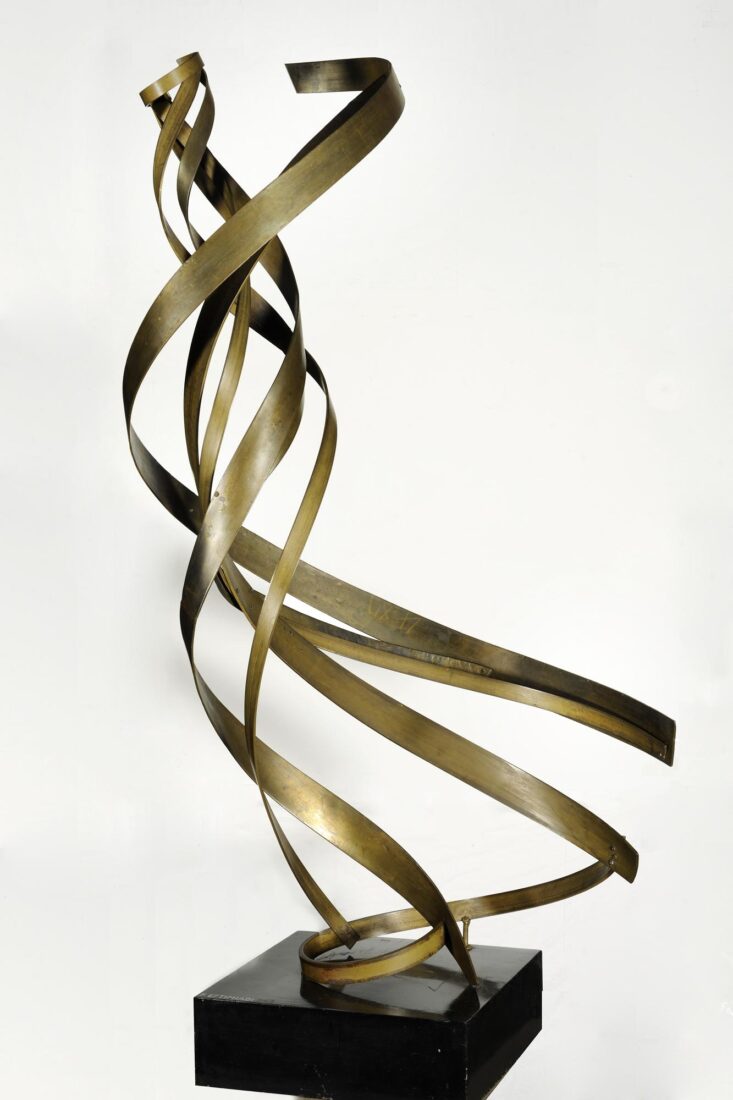We use cookies to make our site work properly, to personalize content and ads, to provide social media features and to analyze our traffic. We also share information about how you use our site with our social media, advertising and analytics partners. Read the Cookies Policy.

Efthymiadi-Menegaki Frosso (1911 - 1995)
Nike II, 1969
Hammered brass, 170 x 90 x 57 cm
Frosso Efthymiadi-Menegaki Bequest
Froso Efthymiadi studied pottery-making in Vienna and for a long period made works exclusively in terracotta in a realistic manner. In 1955 she abandoned terracotta and turned to the use of metal, while the realistic rendering began to lessen and the figures became very abstract, but without the physical form itself becoming unrecognizable.
The female figure provided the spark for the creation of a multitude of both small and large compositions which, sometimes static and other times in motion, set forth the personal view of the sculptor in regard to the rendering of female charms.
From around the end of the Fifties she started using hammered metal rods. The rods were welded together having empty spaces left between them, thus allowing space to enter the work and become a dynamic element in the composition. A “Nike” from 1960, done in hammered bronze and reshaped into practically a straight line, is an ethereal and dynamic form of the ancient image of the “Winged Victory (Nike) of Samothrace”, as it surges forward freely and impulsively and is imposed on space with the assistance of the empty space, which is spontaneously transformed into a natural background. In 1969, the rendering of movement became even freer, as the bronze rods were polished, widened and transformed into ribbons which bend and wind around empty space suggesting the body in “Nike II”, which now seems not only to be rushing ahead but to also be swirling around in a victory dance.

